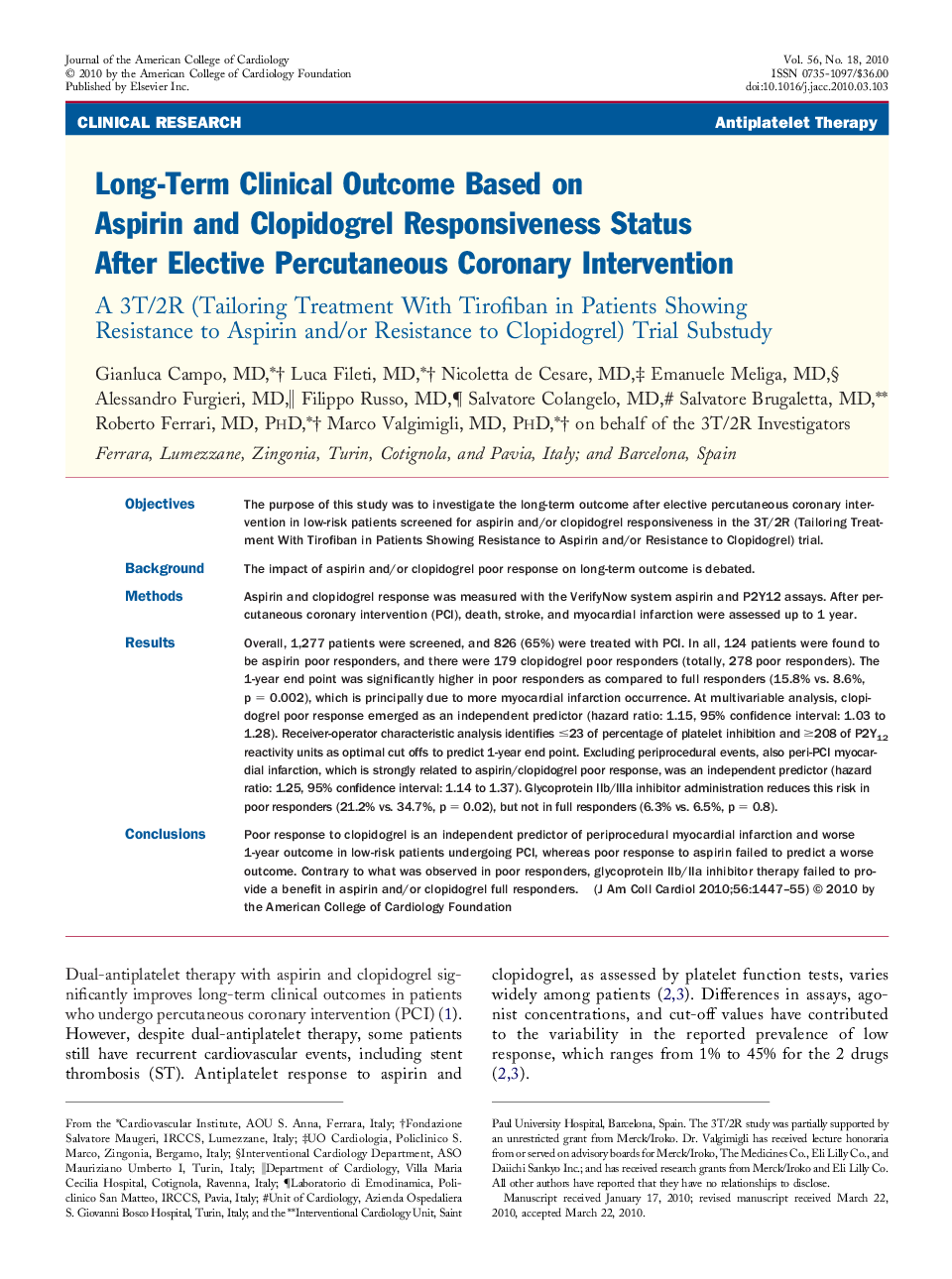| کد مقاله | کد نشریه | سال انتشار | مقاله انگلیسی | نسخه تمام متن |
|---|---|---|---|---|
| 2950166 | 1577292 | 2010 | 9 صفحه PDF | دانلود رایگان |

ObjectivesThe purpose of this study was to investigate the long-term outcome after elective percutaneous coronary intervention in low-risk patients screened for aspirin and/or clopidogrel responsiveness in the 3T/2R (Tailoring Treatment With Tirofiban in Patients Showing Resistance to Aspirin and/or Resistance to Clopidogrel) trial.BackgroundThe impact of aspirin and/or clopidogrel poor response on long-term outcome is debated.MethodsAspirin and clopidogrel response was measured with the VerifyNow system aspirin and P2Y12 assays. After percutaneous coronary intervention (PCI), death, stroke, and myocardial infarction were assessed up to 1 year.ResultsOverall, 1,277 patients were screened, and 826 (65%) were treated with PCI. In all, 124 patients were found to be aspirin poor responders, and there were 179 clopidogrel poor responders (totally, 278 poor responders). The 1-year end point was significantly higher in poor responders as compared to full responders (15.8% vs. 8.6%, p = 0.002), which is principally due to more myocardial infarction occurrence. At multivariable analysis, clopidogrel poor response emerged as an independent predictor (hazard ratio: 1.15, 95% confidence interval: 1.03 to 1.28). Receiver-operator characteristic analysis identifies ≤23 of percentage of platelet inhibition and ≥208 of P2Y12reactivity units as optimal cut offs to predict 1-year end point. Excluding periprocedural events, also peri-PCI myocardial infarction, which is strongly related to aspirin/clopidogrel poor response, was an independent predictor (hazard ratio: 1.25, 95% confidence interval: 1.14 to 1.37). Glycoprotein IIb/IIIa inhibitor administration reduces this risk in poor responders (21.2% vs. 34.7%, p = 0.02), but not in full responders (6.3% vs. 6.5%, p = 0.8).ConclusionsPoor response to clopidogrel is an independent predictor of periprocedural myocardial infarction and worse 1-year outcome in low-risk patients undergoing PCI, whereas poor response to aspirin failed to predict a worse outcome. Contrary to what was observed in poor responders, glycoprotein IIb/IIa inhibitor therapy failed to provide a benefit in aspirin and/or clopidogrel full responders.
Journal: Journal of the American College of Cardiology - Volume 56, Issue 18, 26 October 2010, Pages 1447–1455